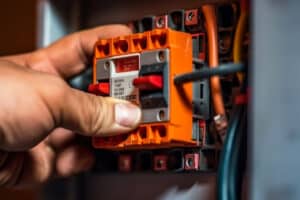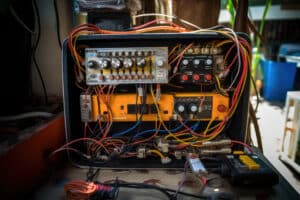Tips for Choosing a Generator for Your Home
Key Takeaways
- Assess your power needs before purchasing a generator
- Understand the different types of generators available
- Consider the fuel source and availability
Choosing the right generator for your home is an important decision that can provide you with peace of mind during power outages. With so many options available, it can be overwhelming to determine which generator is best suited for your needs. In this article, we will explore some tips to help you make an informed decision.
1. Assess Your Power Needs
Before purchasing a generator, it is crucial to assess your power needs. Consider the essential appliances and systems that you would like to run during a power outage. Calculate the total wattage required for these devices to determine the generator capacity you need. It is recommended to opt for a generator with a capacity slightly higher than your calculated wattage to allow for additional power needs.
2. Understand Different Generator Types
There are various types of generators available, each with its own set of advantages and limitations. Understanding these types can help you choose the most suitable generator for your home.
- Home Standby Generators: These generators are permanently installed outside your home and automatically turn on during a power outage. They provide seamless backup power and are typically fueled by natural gas or propane. They offer a high level of convenience but are more expensive to install.
- Portable Generators: Portable generators are versatile and can be easily moved around. They run on gasoline, propane, or diesel fuel and provide temporary power for a limited number of appliances. They are more affordable but require manual setup and fueling.
- Inverter Generators: Inverter generators are a type of portable generator that provides clean and stable power, making them ideal for sensitive electronics. They are fuel-efficient and operate more quietly than conventional generators.
- Solar Generators: Solar generators use solar panels to convert sunlight into electricity. They are environmentally friendly and offer a renewable power source. However, their capacity may be limited, and they require sufficient sunlight to operate effectively.
3. Consider Fuel Source and Availability
When choosing a generator, it is essential to consider the fuel source and its availability in your area. Gasoline and propane are commonly used fuels for generators. Gasoline is readily available but can be challenging to store for long periods. Propane offers longer shelf life and is suitable for standby generators. Natural gas is a reliable option if you have access to a natural gas line. Consider the cost, accessibility, and storage requirements of the fuel source.
4. Evaluate Noise Levels
Noise levels can be a significant concern, especially if you live in a residential neighborhood. Check the decibel rating of the generator to ensure it operates at an acceptable noise level. Inverter generators are known for their quiet operation and are often preferred for residential use.
5. Safety Features
Ensure that the generator you choose has essential safety features, such as overload protection and low oil shutdown. These features help protect both the generator and your appliances from damage. It is also important to follow all safety guidelines provided by the manufacturer, including proper placement and ventilation.
6. Read Reviews and Compare Brands
Before making a final decision, read customer reviews and compare different brands and models. Reviews can provide valuable insights into the performance, reliability, and customer satisfaction of the generator. Consider reputable brands known for their quality and customer support.
7. Budget and Installation Costs
Set a budget for your generator purchase, considering both the initial cost and any installation costs. Standby generators generally require professional installation, which adds to the overall expense. Portable generators are more affordable but may require additional accessories, such as transfer switches, for safe operation.
8. Seek Professional Advice
If you are unsure about which generator to choose or need assistance with installation, it is recommended to seek professional advice. Electricians or generator specialists can assess your power needs, recommend suitable models, and ensure safe installation.
By following these tips, you can select a generator that meets your power requirements and provides reliable backup power during outages. Remember to prioritize safety and consider the long-term costs and maintenance associated with owning a generator.
Related Websites:
FAQs:
Q: How do I assess my energy requirements for a home generator?
To assess your energy requirements, make a list of essential appliances and devices that you want to power during an outage. Determine the wattage needed for each item and add them up to calculate the total wattage required.
Q: What are the advantages and disadvantages of portable generators?
Portable generators offer flexibility and mobility but have limited power capacity. They are suitable for temporary power outages and outdoor activities, but they may not be enough to power your entire home during a prolonged outage.
Q: What are the pros and cons of gasoline generators?
Gasoline generators are widely available and generally more affordable. However, they require proper storage and have higher fuel consumption compared to other fuel sources.
Q: How do I determine the correct power capacity for a generator?
To size the generator correctly, calculate the total wattage required by adding up the wattage of all essential appliances and devices. Consider future power needs as well to ensure the generator can handle potential upgrades or additions.
Q: Why should I rely on unbiased reviews and customer feedback when choosing a home generator?
Unbiased reviews and customer feedback provide real-life experiences and insights from users. They can help you understand the reliability, performance, and customer satisfaction of different generator models, allowing you to make an informed decision based on the experiences of others.






